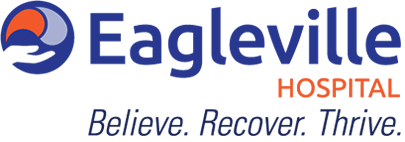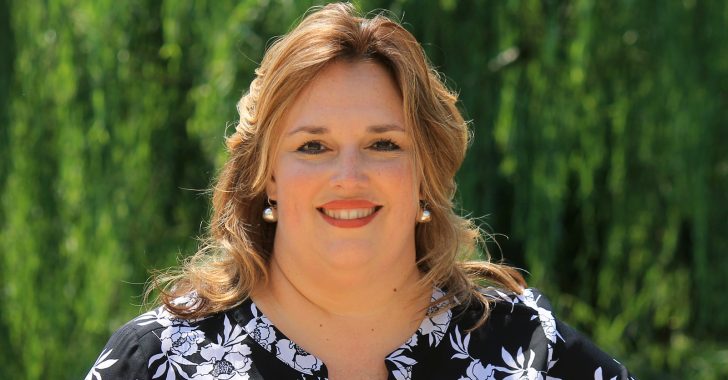Q&A with a Therapist: Heather Hudock on the Role of Family in Inpatient Treatment
Family members of individuals in recovery are often given advice on how to help their loved one after discharge from an inpatient treatment facility; however, family often plays a role in determining what happens before discharge, too.
To explore the role of family at the inpatient stage of recovery, we spoke with Heather Hudock, a therapist in Eagleville’s residential rehabilitation unit, about how she helps her patients reconnect and strengthen their family bonds.
How does addiction impact family relationships?
Our patients don’t always have a lot of contact with their family prior to admission. That’s especially true if they were recently in an extended period of substance abuse or if they’re experiencing mental health symptoms that led to isolation.
During that time, they may believe they are a disappointment to their family, or they may fear their family’s reaction to their substance use including feelings of worthlessness and hopelessness, which can be overwhelming. We know that family can be a major influence on the success of a person in recovery; what that support looks like is key.
Why is it important to consider family while a patient is just starting their recovery?
Some of our patients have lots of family support, some have none, and then there’s everything in between. Sometimes that support is positive, but other times it can be more harmful than helpful if their family lacks education about the disease of addiction. Ultimately, a person in recovery may return to a family that hasn’t had access to the same recovery education, psychotherapy, peer support and skill-building as they have. Figuring out how to navigate their family environment while in recovery is important.
For example, patients sometimes say they don’t tell their family members how they really feel while in recovery. They’ll mask feelings of fear, anger, cravings or sadness and display the emotions they believe their families expect. We examine how to communicate real feelings with family, even when there’s a possibility those feelings will be dismissed, misunderstood, or if it hasn’t gone well in the past.
How does Eagleville help patients strengthen their relationships with family?
Eagleville offers a twice weekly Family Seminar on addiction and co-occurring addiction and mental health issues, as well as a two-hour visitation period for patients. We have a connection with Nar-Anon, which offers a biweekly to talk to families about how to find support for their own responses to a loved one’s addiction and possible breaks in relationships.
We also offer family sessions between the patient, a loved one and a therapist. Typically, these sessions include a significant other or spouse, a parent, grandparents or children. However, it can include whomever the patient identifies as a sober support that will play a role in their recovery. Family sessions are often over the phone or can be in person depending on the availability of the loved ones.
How do you help your patients prepare for their family session?
Planning for the family session is one part of treatment planning. The patient and I determine whom the session will involve and the potential pros and cons of the conversation. Most of the time, the patient is concerned that their family member will be angry with them or bring up past resentments or disappointments, so we process those concerns and discuss how they can be approached.
The next step is to figure out what topics will be discussed and then lay some ground rules for the discussion. The patient gets to decide most of the rules for the session, which helps them feel empowered before and hopefully throughout the session.
What kinds of topics are discussed in a family session?
Often patients decide they want to educate their family about what their aftercare is going to look like. Others want to share their progress in treatment or about some of the resources in the community they’re planning to use after they leave Eagleville.
As the therapist, I have a few different roles in this conversation. I can help the patient to manage the rules and topics of discussion. I can also provide education about what aftercare looks like using real-world scenarios to dispel misconceptions families may have.
I can also explain what the Eagleville clinical team recommends and why. Often, there has been a breakdown in trust between patient and family, so my role may be to act as a bridge between our staff and the family by verifying and clarifying information regarding progress and aftercare.
What else can help your patients address their relationships with family?
In some cases, we need look at systemic abuse within a family and process how to engage in healthy coping. That starts with creating a place of safety and building the skill of good coping. Then we begin to look at interrupting the cycle of abuse, which helps them stay focused on recovery.
I also encourage my patients to have some sort of family session once they’re in outpatient therapy, even if it’s just bringing one or two people in to start. The more communication that occurs within the family, the more empowered the person will feel in their recovery.

